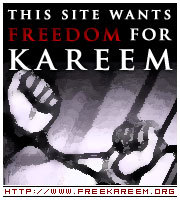India Boosting Pakistan's Economy
For sometime now after the removal of quotas, Pakistan has been losing out in the world textile market due to superior products and offers from its main competitors like India, China, Bangladesh, etc. On one hand India is partly stealing Pakistan’s textile pie in the international market and thus reducing its foreign exchange earnings but on the other hand India is boosting Pakistan’s internal economy.
The popularity of Indian TV dramas among Pakistani women has lead to an increasing trend of attiring sarees, which has boosted the business of local saree manufacturers. Popular Indian TV dramas such as “Kiunkay Saas Bhi Kabhi Bahu Thi”, “Kahin Tu Hoga”, “Kumkum” and “Kahani Ghar Ghar Ki” have played a major role in setting a new fashion trend in the country. This emerging fashion has had a positive impact on clothing and jewellery businesses in domestic markets and creating employment among the lower class people. On the other hand, imports and smuggling of Indian sarees has also surged notably in the country, owing to a soaring demand among female customers for this product. Traditionally, married women belonging to Bihari and Hyderabadi families in the country prefer wearing Banarsi sarees in ceremonies and wear silk and shafoon sarees at home. But the rising fashion trend has breached all ethnic differences and age-limits among women for adopting saree in their culture. A survey conducted by Daily Times at various big shopping centres and manufacturing areas of the metropolis revealed that the production and sales of sarees have increased following a rising demand among the women from elite and middle classes. Scores of entrepreneurs, who have newly established their business with large stocks of this popular dress, have been generating profitable revenues while cashing in on the saree fever. One of the saree retailers at Tariq Road in Karachi, Muhammad Sohail told Daily Times that the sale of sarees has increased tremendously since last three years. He estimated that the business of every big saree emporium at Tariq Road has surged by four times in just two years and scores of saree shops have been opened in various shopping centres. “If one (shopkeeper) used to sell 20 sarees in a week, now he is selling around 100 sarees in the same period. “The Saas-Bahu dramas have played a magnificent role as advertisement campaign for sarees, and provided a remarkable boost to our sales,” he said. According to shopkeepers, the majority of the customers purchase sarees ranging between Rs 2,500 and Rs 5,000, whereas some also demand costly and exclusive sarees ranging between Rs 8,000 to Rs 15,000 per item, especially for dowry purposes. Banarsi, silk and shafoon sarees are highly demanded by the customers. The local manufacturers design sarees with valuables embroidery and handiwork to imitate the Indian style. Interestingly, the most demanded and costly sarees in the market are those, which look similar to the saree worn by Indian actresses in Indian TV dramas. Keeping this in view, the local manufacturers have adopted a simple technique to name their sarees after the popular characters in the dramas. “Kumkum and Kashish sarees are very popular among young and unmarried customers,” Sohail said. For instance, a saree similar to one worn by a popular TV character Kashish is available in the market for Rs 20, 000 under the name of “Kashish saree”. A saree worn by Kumkum –another famous TV character - branded as “Kumkum saree” is being sold at Rs 25, 000. Besides, huge quantities of sarees are being imported from Dubai via India. It is also smuggled directly from India by some cloth merchants. The surging fashion craze created by Indian TV dramas has not only boosted the business of cloth merchants, but has also increased profits of the jewellery industry. Mangalsuther (necklace), bangles and earrings, similar to those worn in Indian TV dramas, have rose in demand.[Daily Times]
So once again India's Softpower rocks. One more reason for Pakistan to lift the ban of Indian News Channels - who knows what that can do to Pakistan's economy. One more reason to liberalise trade between the two countries - to put an end to smuggling and cut the middle-men of Dubai out. I am looking forward to know the reactions of the Pakistani political parties to this revelation. I am sure the Mullahs will be aghast at this news.

No comments:
Post a Comment